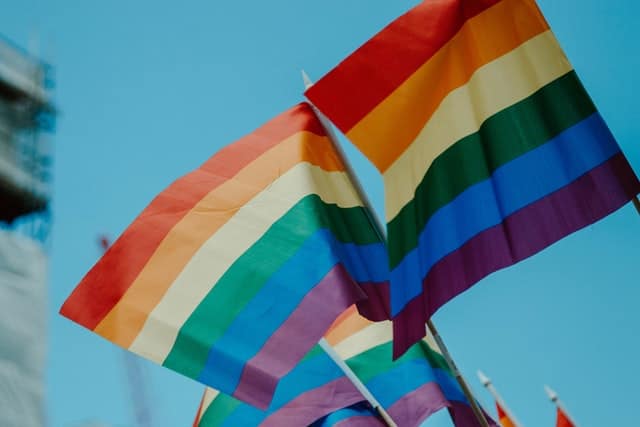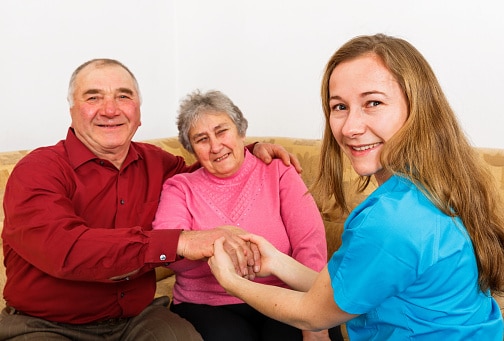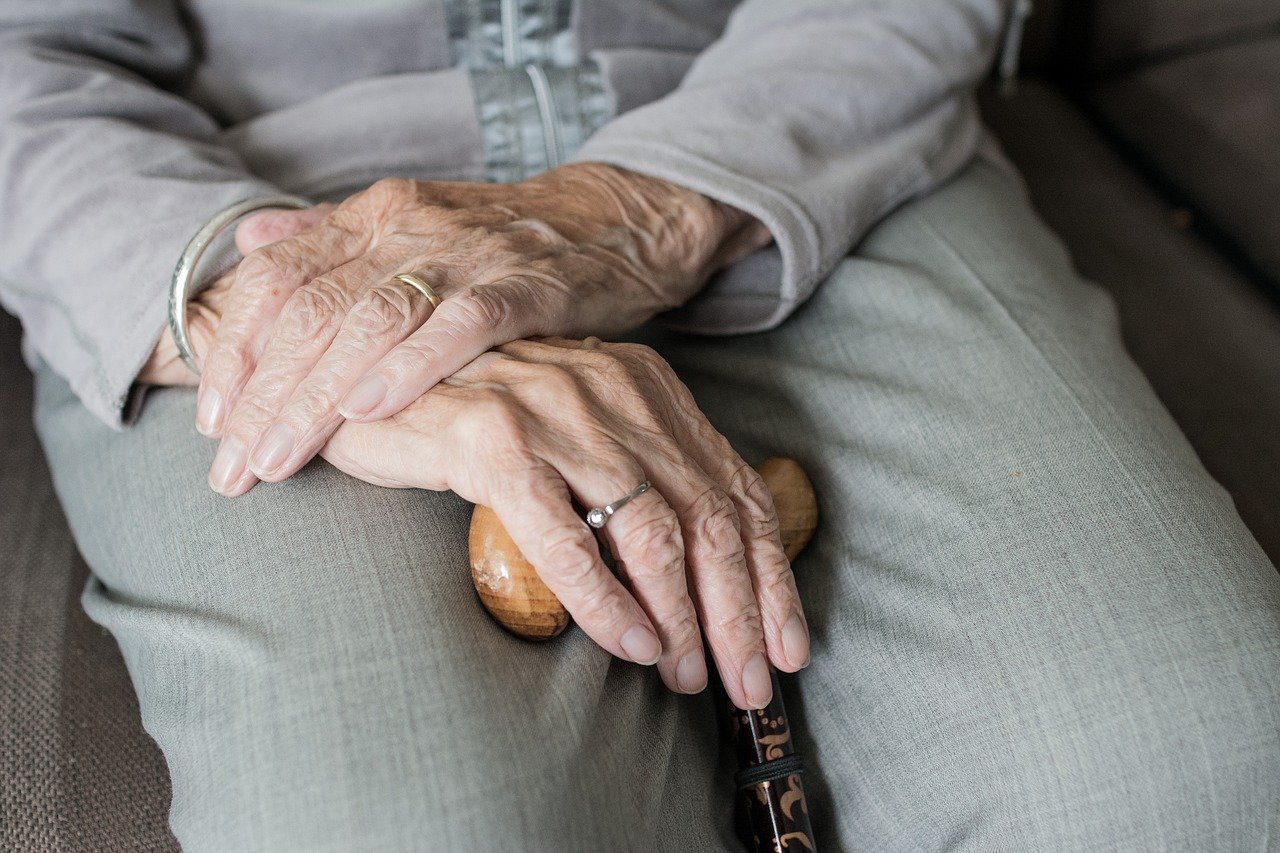
LGBT Senior Guide: Key Considerations and Resources
By 2030, there will be 7 million LGBT seniors over the age of 50 in the U.S. Yet, services catered to the needs and challenges of LGBT seniors are severely lacking.
Luckily, service providers are catching up and at long last are considering the difficulties that LGBT seniors face. Though aging is hardly a seamless process, LGBT seniors often struggle to obtain two key pillars of elder life: housing and healthcare.
Simultaneously, LGBT seniors also face indirect challenges arising from discrimination throughout their lives. These include social isolation, trauma, poverty, and lack of accessible legal services.
Let’s take a closer look at the difficulties that LGBT seniors face today and what providers are starting to offer to better serve this population.
Housing & cultural competent staff
LGBT seniors today are aging baby boomers who may have suffered intense discrimination in their younger years. The skepticism of receiving fair treatment is hard-felt in this community. 80% of LGBT seniors hide their orientation when they enter a long-term care facility.
This is hardly the ideal housing situation for LGBT seniors who deserve non-discrimination treatment and policies. Thankfully, LGBT-friendly senior housing is rising across the U.S. These facilities are working to improve the LGBT senior experience by providing fair and safe services.
LGBT-friendly senior communities
Senior housing now includes LGBT-friendly and LGBT-exclusive communities. LGBT-friendly means that the facilities work to create an inclusive space for LGBT seniors, while LGBT-exclusive is 100% housed by LGBT seniors.
LGBT seniors have different preferences when it comes to their housing situations. Some may feel more comfortable in an LGBT-exclusive facility, especially if they’re interested in joining LGBT support groups or dating other LGBT seniors. Safety may also be a top concern for these seniors who want to feel protected from discrimination.
However, LGBT-friendly communities are also popular because they support diversity through a mix of gay, straight, and transgender seniors. These facilities may offer similar services as LGBT-exclusive centers, but they’re not completely composed of LGBT seniors.
LGBT-specific staff training
Lack of cultural competency among staff is another source of distress for LGBT seniors. It’s fairly common for LGBT seniors to suffer discrimination at the hands of housing staff. This may include staff refusing to accept a partner’s medical power of attorney, making snide remarks about a same-sex partner visit, or not accepting an individual’s preferred name and/or pronoun.
Having LGBT-specific staff training is essential for seniors to feel at home so they don’t have to worry about receiving fair and kind treatment from staff members. The idea behind cultural competency is to educate and train staff so that they’re able to care for LGBT seniors with compassion.
SAGE (Services and Advocacy for LGBT Elders) is an advocacy group that offers training on LGBT-specific cultural competency. It’s a key aspect of the facility experience for these seniors. Studies show that 88% of LGBT seniors want long-term care facilities that are culturally competent.
LGBT non-discrimination policies
Finally, housing for LGBT seniors should always be built on the foundation of non-discrimination. Policies for any care facility – whether it’s LGBT-friendly or not – should never violate anti-discriminatory laws.
It’s essential that housing providers have non-discrimination policies in place. Currently, 48% of LGBT couples experience adverse treatment when seeking senior housing. Housing providers must ensure that fair treatment is a cornerstone of their facilities, which includes staff, other residents, and any service providers on-site.
The ideal housing provider will have policies that broadly define family, respect same-sex rights, and provide high-quality care day in and day out.
Social isolation & loneliness
In addition to housing, LGBT seniors are more likely to suffer from social isolation and loneliness. Compared to their heterosexual peers, LGBT seniors are more likely to feel alone, twice as likely to be single, and four times less likely to have kids. (This may have resulted from legal obstacles to adopting and getting married.) Additionally, they may have suffered from estranged relationships with their families.
Social isolation is a real health problem for seniors. Experts say it may increase risk for conditions such as heart disease, obesity, anxiety and depression, among others. Loneliness is even associated with a 50% percent increased risk of dementia.
These seniors are even more at risk for becoming isolated or lonely. Studies report that 60% of LGBT seniors report feeling “a lack of companionship.” That’s why housing providers should consider social as well as health services. Let’s take a look at some great ideas for LGBT housing.
LGBT-open social events
An enriching social life should be a core belief for housing providers. This isn’t just to entertain seniors, but rather to upkeep their health. It’s important for LGBT seniors to have access to social activities, ranging from yoga and gym classes, art workshops, book clubs, language courses, nature walks, karaoke, social dances, trivia contests, happy hours – you name it!
LGBT dating
Ideally, LGBT seniors would be able to find a safe and supportive community to date. Dating is a common aspect of senior life, regardless of sexual orientation, and all housing providers should work to create this safe space for LGBT dating.
Senior dating is also connected to physical and mental health services. Even with advanced age, some seniors may be interested in getting resources about safe sex and healthy relationships. It’s a good idea for these services to be available upon request.
LGBT-open family visitation
Finally, social isolation can worsen if LGBT seniors don’t feel comfortable receiving family visits. Housing providers should support and encourage LGBT-open family visitation, which may include same-sex partners or other family members. Having an open definition of family can help these seniors maintain ties with family and friends outside of their care facility.
Healthcare & wellness
As we mentioned, LGBT seniors are at higher risk of social isolation. They also suffer more physical and mental health issues, including disabilities. Unfortunately, access to health services isn’t a given and those who fear discrimination may forfeit care altogether.
Let’s go into some of the main health and wellness concerns for LGBT seniors.
Higher risk of health issues
Across the board, these seniors face more health challenges compared to their heterosexual peers.
- 41% of LGBT seniors have a disability.
- LGBT seniors are more likely to suffer depression and anxiety.
These are just a handful of some of their most pressing health needs. Overall, they have a lower level of health and may require more attentive health care.
LGBT seniors with HIV
HIV is a key health topic for LGBT seniors. Half of all HIV-infected Americans are over 50 years old and 29% of AIDs patients are over 50. For HIV-positive seniors, it’s an important issue that should be included in their health care plan.
Due to the stigma surrounding HIV, some seniors aren’t open about their diagnosis or avoid seeing the doctor for other health issues because of it. Ideally, LGBT seniors would feel comfortable with their doctors in order to discuss these health topics openly and keep up their health with HIV.
LGBT seniors with dementia
Dementia is another health condition that impacts LGBT seniors especially hard. That’s because dementia can bring back memories that are abusive, discriminatory, or otherwise stress-inducing. This may even involve memories from before these seniors had come out or transitioned.
LGBT dementia patients need extra care when it comes to memory care. Therapies that work well for other patients may be especially tricky for them. In particular, reminiscence therapy, which works to identify calming memories may be difficult for LGBT seniors.
Discrimination (and lack of access) in health services
LGBT seniors face key health challenges, yet they also suffer discrimination and lack of access in health services. The fear of discrimination can also add to poor health, as these seniors avoid getting care and/or become stressed over health.
While it’s difficult to express the full range of discrimination in numbers, SAGE’s survey highlights some of the discrimination and lack of access that LGBT seniors still deal with today.
- About 20% of LGBT people avoid medical care out of fear of discrimination.
- Nearly 1 out of 3 transgender people don’t have a regular doctor.
- 9 percent of LGBT people report that a doctor or health worker used harsh or abusive language while treating them. (This number spikes to 21% for transgender people.)
As we can see, discrimination and lack of access are major issues for LGBT seniors.
Drug and alcohol consumption
Lastly, these seniors may smoke and consume alcohol at higher rates. More than anything, these “bad habits” show a worrisome lack of self-care among LGBT seniors.
- LGBT people smoke cigarettes at rates 68% higher than the general population.
- LGBT seniors are significantly more likely to consume alcohol and binge-drink than heterosexual older adults.
Experts believe that self-care in LGBT seniors is especially complicated due to the lack of regular health check-ups and skepticism about health providers treating them fairly. They’re also more likely to live alone and have less money to spend on their health.
Given these unique health challenges, it’s essential that LGBT seniors have access to health services, especially as part of their housing. Some nonprofits and advocacy groups are working hard to ensure that LGBT health services are affordable, accessible, and fair.
Trauma
It’s clear that LGBT seniors face higher health risks. They’re also more likely to have experienced trauma in their lives, which can impact health and well-being.
Whether verbal or physical abuse, these seniors were some of the first to feel the backlash of being gay or trans in the U.S. Some of the numbers to emphasize this reality include:
- About two-thirds of LGBT seniors have experienced victimization at least 3 times in their lives.
- Half of LGBTQ seniors have either been abused or witnessed abuse.
- 41% of transgender people are reported to have attempted suicide.
Trauma comes in many shapes and sizes. For the LGBT community, some common threads of discrimination and abuse may involve being separated from a same-sex partner, being forced to live with an LGBT-phobic roommate, or experiencing discriminatory practices in housing, health care, and education.
In light of these experiences with discrimination and abuse, it’s important for LGBT senior services to take it into account. For example, creating safe LGBT-friendly housing is just one way to combat this past trauma. Mental health is another area to consider as part of a suite of key health services.
Finances
Another key consideration for LGBT seniors is their finances. A recent Bloomberg article revealed that this population experiences employment discrimination. A whopping 27% reported not being hired due to their sexual orientation. This can translate to unemployment, lack of career opportunities, and overall financial insecurity.
The financial insecurity that many of these seniors face has impacts on their health and wellness, too. Let’s go in detail on the main financial obstacles for LGBT seniors.
Lack of insurance resulting from financial insecurity
Due to higher rates of financial insecurity, some LGBT seniors have limited or no health insurance. Fortunately, most of these seniors will qualify for Medicaid to get basic care, but need gaps still exist.
Compared to their heterosexual peers, these seniors are less likely to have savings, retirement planning, or long-term care insurance that typically come with good jobs. This can make long-term care at a residential or nursing home hard to pay for. This reality, on top of already high health risks, put many LGBT seniors in dire financial straits.
Social Security benefits and pension from partners (pre-2015)
Because of fewer job opportunities, LGBT seniors may receive lower Social Security benefits than their peers. This can cause financial strife during the senior years, in addition to having less savings and retirement planning.
At the same time, some seniors may not receive the same Social Security pension benefits from their partners who died before 2015. In that year, same-sex marriage was legalized, granting partner/spouse pension rights. This could be another financial hit for same-sex partners who didn’t receive benefits prior to 2015.
The importance of Medicaid & Medicare
Access to Medicare and Medicaid may be especially important for these seniors who lack insurance or face financial difficulties. These government-sponsored programs can bring essential care to these seniors who otherwise don’t have the financial ability to pay for care.
In particular, the rules surrounding Medicaid have changed in recent years, allowing for some assets such as a house or car. This could help some LGBT seniors who are on the fence for qualifying. (Remember that Medicaid benefits are granted to low-income patients.)
However, Medicaid and Medicare aren’t a full-scale solution. Elder care and housing isn’t often covered 100% by these programs. This can make paying for a residential home or assisted living program especially tricky.
LGBT discrimination & litigation
Finally, LGBT seniors who find themselves facing discrimination often don’t have access to lawyers. This is due to financial constraints, as well as a lack of information about discrimination lawsuits.
In order to open the conversation on LGBT discrimination and litigation, we’ve put together some resources for seniors who are interested in knowing their rights and/or pursuing litigation against discriminatory practices.
Fair housing legislation
By federal law, LGBT individuals are protected by the Fair and Equal Housing Act. It’s against the law to discriminate against LGBT individuals/couples and prevent them from renting or buying a house. In fact, studies show that heterosexual couples are often favored over same-sex couples by 16%.
If you’re an LGBT senior who has been discriminated against in housing – including residential or nursing homes – you should contact an LGBT law attorney ASAP. Many LGBT nonprofits work to waive legal fees in order to make these lawsuits more accessible.
Rights vary by state
Another issue with LGBT senior rights is that they may vary by state. For example, Alabama does not have laws to protect against discrimination based on sexual orientation. This can be a major roadblock to receiving fair treatment.
This problem is quite prevalent. According to SAGE, half the LGBT population lives in states with no laws prohibiting housing discrimination. Here’s a good resource for learning about LGBT rights according to your state of residence.
LGBT law attorney
If you’re in need of an LGBT law attorney, you should contact some of the top LGBT advocates. These include, but aren’t limited to, the LGBT Bar, Lambda Legal and Pride Legal. LGBT law attorneys understand the laws that protect your rights as an LGBT senior, including housing, finances and inheritance.
LGBT elder hotline
If you’re an LGBT senior dealing with a crisis and you’re not sure what to do, you can try the LGBT elder hotline. SAGE is an amazing national advocacy group that provides an LGBT senior hotline for anybody to call and get information and assistance. (Translators are available in 180 languages, too.)
LGBT senior resources
LGBT seniors have rights. As you handle the unique challenges of being an LGBT senior, here are some excellent resources to help you navigate them.
- National Resource Center on LGBT Aging
- SAGE (Advocacy & Services for LGBT Elders)
- AARP – LGBT
- Family Equality
- National LGBTQ Task Force
- ACLU – LGBT Rights
- Benefits.gov
- Benefits CheckUp
- My Caring Plan
We hope that this LGBT senior guide is a useful first step in understanding your rights and living your elder years with the security, fairness and joy you deserve.
Sources:
- LGBTQ seniors face unique challenges, SAGE, www.sageusa.org
- The Facts on LGBT Aging, Avenidas, www.avenidas.org
- LGBT Aging Project, Fenway Health, fenwayhealth.org
- How Can Legal Services Better Meet the Needs of Low-Income LGBT Seniors?, Justice in Aging, justiceinaging.org
Related Articles

Elder Law Attorneys: A Comprehensive Guide
If you are someone who is taking care of a senior or has an elderly loved one, you should consider working with an elder law attorney. Though you may not expect it, individuals begin to face new and more complex legal concerns as they get older. Actions that may have seemed trivial when they were […]

When Is It Time for Assisted Living?
Wondering if it is time for assisted living for your loved one is a common question for caregivers. As a caregiver, you might have been considering the question for months or possibly even years. Your loved one might have declined to continue the discussion as the thought of moving out of their family home and […]

All About Adult Day Care: Community and Costs
Adult day care is a fairly new concept for caregivers. The basic idea is to provide a secure place where seniors can enjoy social activities during the day and be provided nursing care as needed. It’s a hybrid model of eldercare that prioritizes community. At the same time, seniors get help with common custodial tasks […]

Respite Care: An Overview
Caregiving can be overwhelming at times. That’s why taking a break is essential for recharging your battery. Respite care, also called short break care, is a way for caregivers to get temporary care for their loved ones so they can take some time to rest. Getting this “me time” of respite care can renew the […]

An Overview of Senior Rehabilitation Centers
Recovering from injury or illness in your golden years may take time and support. That’s where senior rehabilitation centers become essential. If you need a temporary stay to recover from injury or illness, senior rehabilitation centers can be the solution to get expert care and daily support. In this article, we’ll give you an overview […]

A Caregiver’s Guide to ADLs and IADLs
This article has been medically reviewed by Dr. Martin Duggan in 2021. This content is not intended to be a substitute for professional medical advice, diagnosis, or treatment. Always seek the advice of your physician or another qualified health provider with any questions you may have regarding a medical condition. As a family caregiver, your […]